
The Proper Order
B"H
Disclaimer: The Rabbi of Shtiebel of the Hill is not a Messianic Jew or aligned with the Messianic movement, but we cannot ignore the unfortunate mistreatment experienced by many individuals, including those with Messianic beliefs, as they explore Judaism. We believe that Jews with the faith in Yeshua (Jesus) should be recognized as having a personal spiritual conviction within the framework of Traditional Judaism, provided there is no attempt to missionize Jews.
We have been taught by our main Rabbi, that Orthodox Jews should seek to build bridges with Observant (Orthodox or Traditional) Messianic Jews, who often uphold a level of Jewish practice and observance far surpassing that of many in the Conservative or Reform movements. It is vital to remember that belief in Yeshua, while not a normative concept in Judaism, remains an individual's personal choice. People should not be shamed or ostracized for holding spiritual convictions that they genuinely believe in. This realm of belief falls within Hashkafa—one’s philosophical outlook and personal journey of faith. Even though this is not a normal Hashkafa.
“While belief in Yeshua is not normative in Orthodox and Traditional Judaism, we recognize that some Jews hold this conviction as part of their personal journey, and they should not be shamed or excluded if they otherwise live a faithful Jewish life.”
“At Shtiebel of the Hill, we honor the dignity of every Jew and prospective convert, whatever their convictions — whether they see Yeshua as Mashiach, do not, or are still unsure — as long as they walk a faithful Jewish path.”
We believe this helps fulfill the spiritual and intellectual needs of all our readers, fostering a space of mutual respect and understanding
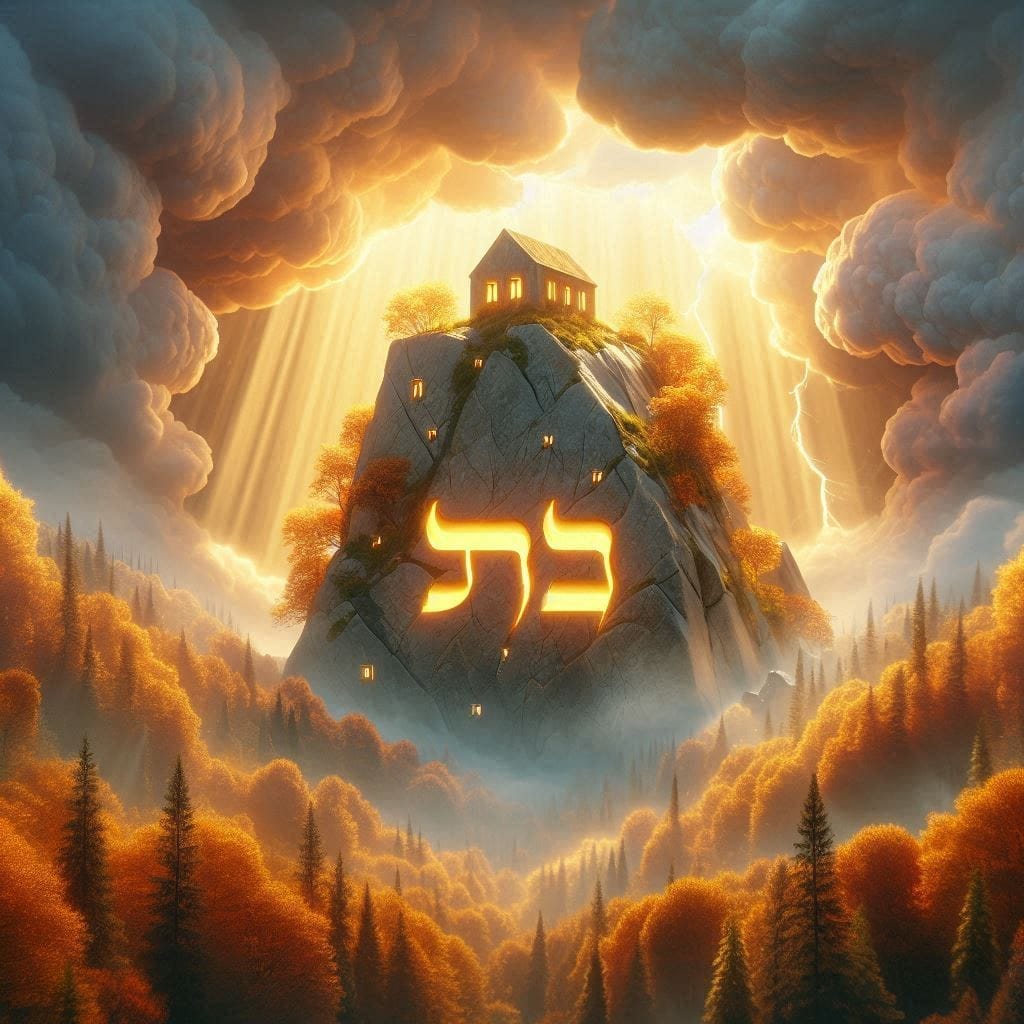
1. Opening Question
Every Jew who hears the name Mashiach or Christian hears the name Jesus or Yeshua must face the same question: What comes first — Torah or Yeshua? It is not a trick, nor is it merely philosophical. It is the dividing line between Judaism and Christianity, between covenant and distortion, between the eternal word of Hashem and a man-made narrative.
In Christianity, the answer was given early and loudly: Yeshua comes first, Torah comes second, if at all. This is why Paul, the Church Fathers, and later councils could freely say that commandments were no longer binding. Their order was set: the man replaced the mitzvot.
But Judaism’s answer is older, stronger, and eternal: Torah always comes first. Even Mashiach himself, whoever he may be, is subject to Torah, for he has no power or authority outside of it. Rambam is crystal clear: Mashiach cannot add, cannot subtract, cannot innovate, but only restore Torah to its rightful place among Israel.
This is why the question is not just theological but existential. If Torah is set aside, then Yeshua becomes a tool for empire, a figurehead for breaking mitzvot, and a justification for leaving Israel’s covenant. If Torah is placed first, then even Mashiach’s voice is measured by halacha, and all prophets and leaders are judged by their fidelity to the mitzvot.
So let us not dodge the question, but face it head-on: What is more important for the Jew — Torah or a Messiah? The answer must come not from opinion or from polemics, but from Torah itself.
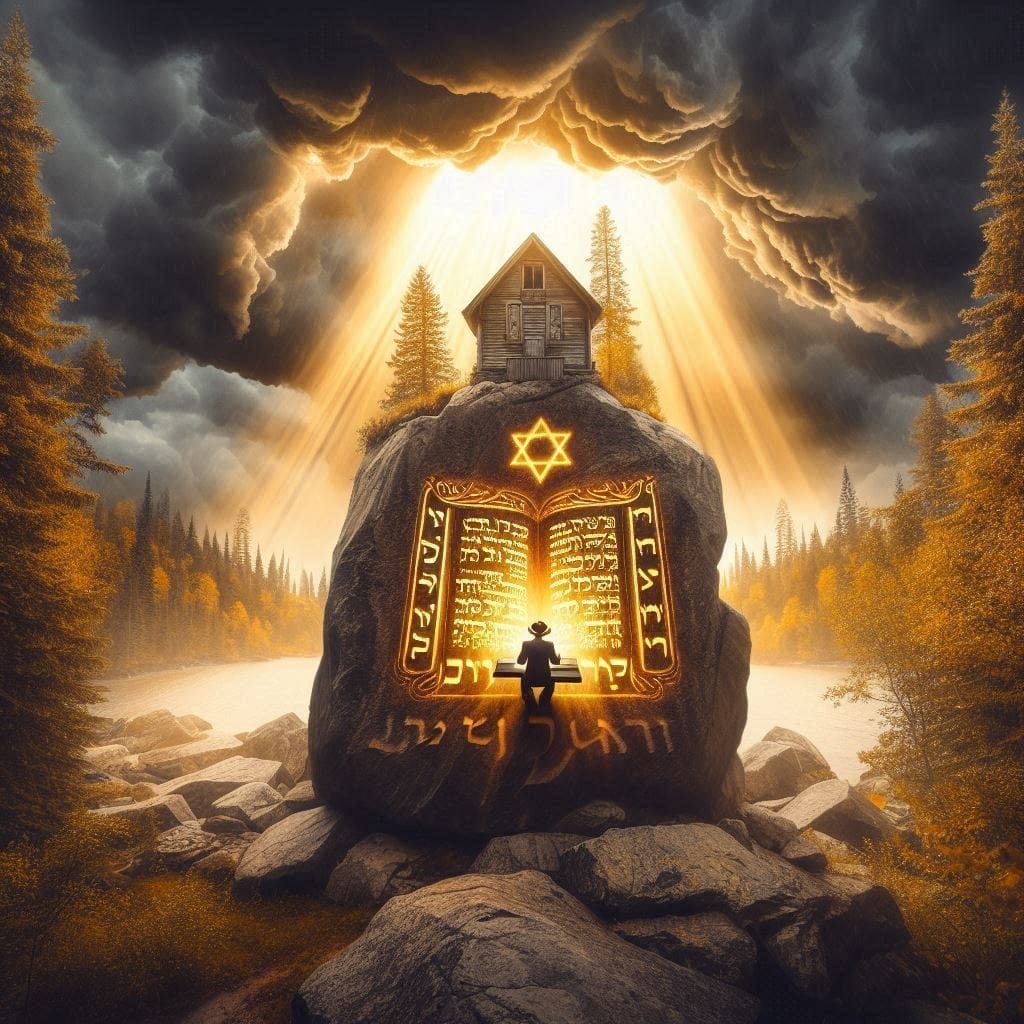
2. Torah Foundation:
Six Proofs of Eternity from the Torah
Before turning to Rambam or halachic codification, we must go straight to the source: the Torah itself. Already in the Chumash, Hashem testifies again and again that His covenant and His commandments are eternal. These are not poetic flourishes; they are legal decrees, binding forever. The Torah does not leave the matter vague. It states explicitly: this covenant does not end, and no man may change it.
Here are six examples, drawn directly from the Five Books of Moshe:
1. Exodus 12:14 — Pesach as an eternal memorial.
“And this day shall be to you a memorial, and you shall keep it as a feast to Hashem throughout your generations; you shall keep it a feast by an eternal statute (חֻקַּת עוֹלָם).”
Already in Egypt, at the birth of Israel as a nation, Hashem establishes the pattern: mitzvot are not temporary measures but eternal decrees.
2. Exodus 31:16–17 — Shabbat as an eternal covenant.
“The Children of Israel shall keep the Shabbat, to observe the Shabbat throughout their generations, as an eternal covenant (בְּרִית עוֹלָם). It is a sign forever (אוֹת הִוא לְעוֹלָם) between Me and the Children of Israel.”
Here the Torah uses the strongest possible language: covenant (brit) and eternal (olam). Shabbat itself testifies that Torah’s bond cannot be broken.
3. Leviticus 16:34 — Yom Kippur as a permanent statute.
“And this shall be to you an eternal statute (חֻקַּת עוֹלָם), to make atonement for the Children of Israel for all their sins once a year.”
Even in the holiest, most unique service of the year, the Torah emphasizes eternity. If Yom Kippur itself is eternal, then the Torah which commands it must be eternal.
4. Leviticus 23:14 — The mo’adim as forever laws.
“…it shall be an eternal statute (חֻקַּת עוֹלָם) throughout your generations in all your dwellings.”
The festivals are not limited to the wilderness, nor to the Temple period, but in all generations and in all dwellings. This verse shuts the door on the claim that mitzvot were meant for one time and not another.
5. Deuteronomy 4:2 — The Torah may not be changed.
“You shall not add to the word which I command you, nor shall you diminish from it, that you may keep the commandments of Hashem your God which I command you.”
This is not poetry — it is law. Hashem Himself legislates that the Torah is sealed. No prophet, no leader, not even Mashiach, can overturn this.
6. Deuteronomy 29:28 [29:29] — For us and our children forever.
“The hidden things belong to Hashem our God, but the revealed things are for us and for our children forever (עַד עוֹלָם), to do all the words of this Torah.”
The Torah itself says the commandments are for us and for our descendants forever. There is no expiration date, no covenant “replaced.”
Conclusion of Section 2: Already within the Chumash, before Rambam, before the Talmud, before all commentary, the Torah declares: it is eternal. The mitzvot are olam. The covenant is olam. The prohibitions against changing it are olam.
If the Torah is eternal, then any system that claims to “fulfill” it by erasing it, or to “replace” it with a person, is not only false but in direct contradiction with Hashem’s own words.

3. Halachic Foundation:
Rambam on the Eternity of Torah
Rambam, the great halachic codifier, takes the verses of the Torah and the principles of the Talmud and cements them into law. In at least six places across the Mishneh Torah, he rules explicitly that Torah is eternal and cannot be changed.
These are not isolated comments but a consistent principle, anchored in Gemara and halacha.
1. Yesodei HaTorah 9:1
Rambam: “It is clear and explicit in the Torah that it is an eternal commandment, and it is not subject to change, diminution, or addition.”
• Root: Devarim 13:1; Talmud Sanhedrin 99a.
2. Yesodei HaTorah 9:2
Rambam: “If a prophet should arise and say that Hashem commanded him to add or subtract, he is a false prophet.”
• Root: Devarim 4:2; Talmud Sanhedrin 90b.
3. Hilchot Melakhim 11:3
Rambam: “The King Mashiach… will not add or subtract from the Torah, but will restore its observance and fight the wars of Hashem.”
• Root: Devarim 17:18–20; Talmud Sanhedrin 99a.
4. Hilchot Teshuvah 3:8
Rambam: “One who denies the Torah, saying that the Creator exchanged one commandment for another… even if he says the whole Torah is from Hashem except this one detail — such a person is a heretic.”
• Root: Devarim 29:28 [29:29]; Talmud Sanhedrin 99a.
5. Hilchot Tzitzit 3:9
Rambam: “Even if there is no tekhelet, the mitzvah of tzitzit remains forever with white threads.”
• Root: Bamidbar 15:38–40; Talmud Menachot 38a–41a.
6. Hilchot Temidin uMusafin 1:3
Rambam: “The order of the korban tamid is a statute forever, even though we do not have the Temple today.”
• Root: Bamidbar 28:6; Talmud Menachot 110a.
Conclusion of Section 3: Rambam confirms what Torah itself said: the mitzvot are eternal, even when circumstances change. Even in exile, even without Temple, even without tekhelet — the mitzvot remain binding.
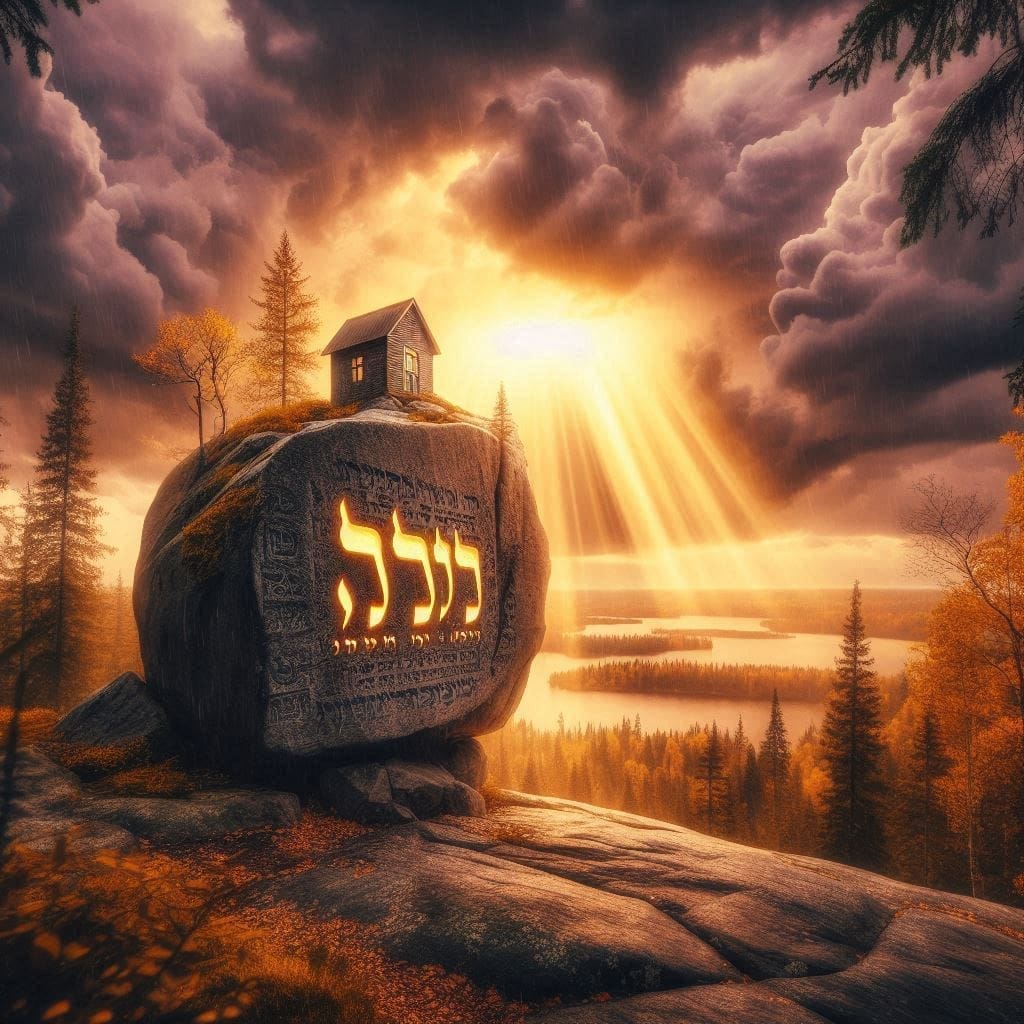
4. Lets use Yeshua as an example in his proper Context
If we strip away centuries of Church theology and return to the historical setting, Yeshua appears not as the founder of a new religion, but as a Pharisee-rabbi within the world of Torah.
The Christian texts themselves, when read carefully, portray him citing Torah and what was becoming Halacha, debating halacha, and speaking in the idiom of the sages. He was surrounded by Pharisees, Sadducees, Essenes, and other currents of late Second Temple Judaism — but his language and teaching fit squarely in the world of Pharisaic halacha that later gave rise to the Mishnah.
Consider the following:
• Halachic Debates. Yeshua’s disputes over Shabbat, ritual purity, and tithes are recognizable halachic debates. The Mishnah and Gemara are full of similar arguments: what is permitted on Shabbat, how far must purity laws extend, how should one tithe herbs. These are not rejections of Torah, but the very lifeblood of Torah she-be‘al peh, the Oral Law.
• Citing Devarim and Tehillim. Again and again Yeshua answers in the language of Torah: “It is written” (כָּתוּב), “Have you not read?” These are rabbinic formulas. He does not abolish mitzvot; he strengthens them by demanding kavvanah (intention) alongside action.
• The Pharisaic Connection. To call Yeshua a Pharisee is not an insult but a simple recognition. The Pharisees were the ancestors of rabbinic Judaism. They believed in Torah she-be‘al peh, in halachic development, in resurrection, in the sanctity of mitzvot. If Yeshua belonged anywhere, it was here.
• Misunderstanding vs. Distortion. When later Church writers read these debates, they often mistook halachic discussion for rejection. For example, a disagreement over pikuach nefesh and Shabbat (saving life on Shabbat) becomes, in their eyes, proof that Yeshua abolished Shabbat. But in the Mishnah (Yoma 8:6) and the Gemara (Yoma 85b), the same principle is taught: saving life overrides Shabbat. Yeshua was not innovating against Torah; he was in line with it.
This is why Rambam’s principle in Yesodei HaTorah 9:2 is crucial: a prophet who says Torah is to be changed is a false prophet. By that measure, Yeshua — as originally understood — does not qualify as a false prophet. He did not demand Torah’s annulment. But when Paul, the Fathers, and later the Church recast him as the end of Torah, they turned him into something he never was.
Thus we face a choice:
• The Jewish Yeshua, a Pharisee within Torah, arguing halacha, upholding mitzvot, calling for teshuvah and kavvanah.
• Or the Christian Yeshua (Jesus), cut loose from Torah, remade as divine lawgiver, portrayed as replacing mitzvot.
The first belongs to us. The second belongs to them.
Key Point: Yeshua in Torah-context is part of the Jewish story. Yeshua removed from Torah is a Christian invention.
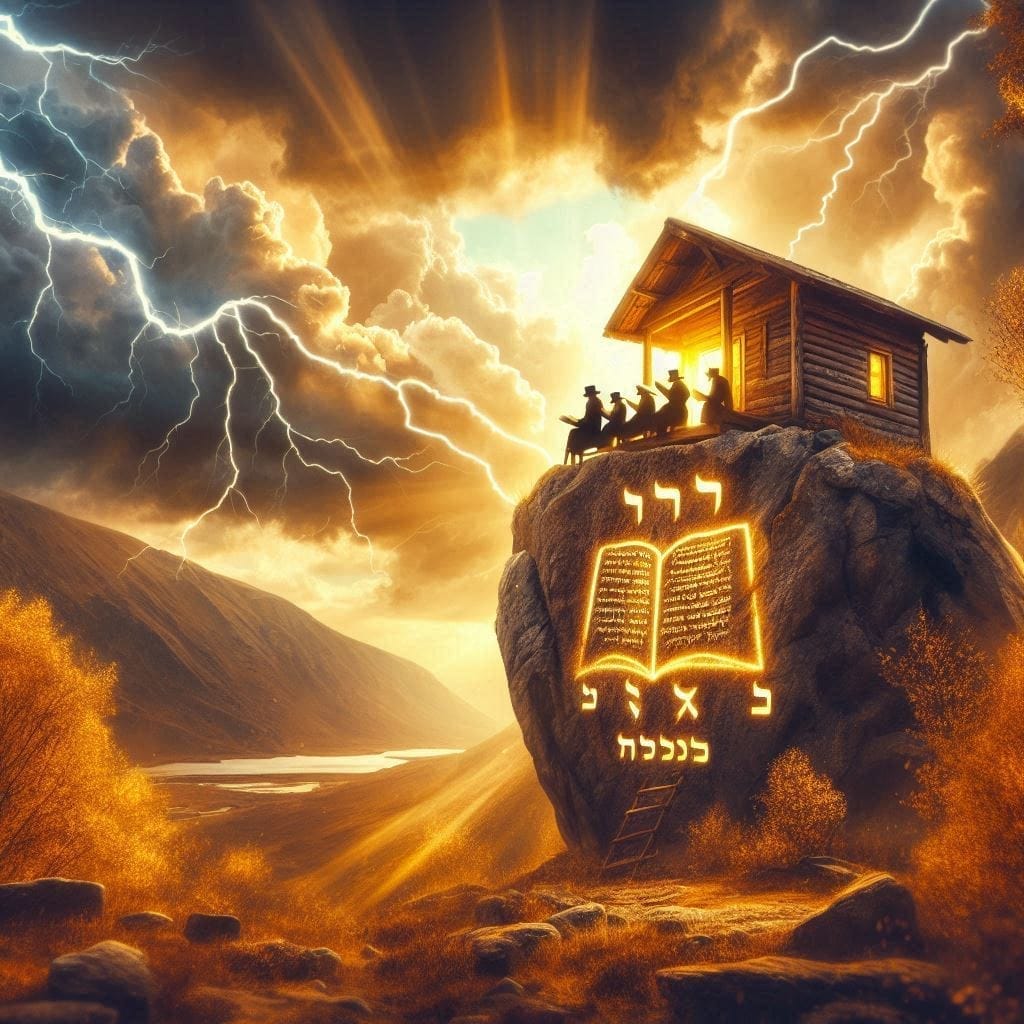
5. The Christian Mistake and the Church’s Agenda (Expanded)
The central error of Christianity was not merely claiming Yeshua as Mashiach, but placing him above Torah. To accomplish this reversal, the early Church had to rewrite both Yeshua’s identity and Torah’s role. The process unfolded step by step, and we can trace it directly in early writings.
Paul: The Seed of Reversal
Paul’s letters are the earliest layer of the new narrative. In Galatians 3:24–25, Paul declares:
“The Torah was our guardian until Christ came… now that faith has come, we are no longer under a guardian.”
Here Paul sets Torah aside as temporary, arguing it existed only as a preparation for Yeshua. He also coins the pejorative “Judaizers” for those who continued to teach that Torah observance remained binding. From a Jewish halachic perspective, this is astonishing: Torah, which the Chumash declares eternal (olam), is here reduced to a scaffold to be discarded.
In doing so, Paul provides the theological blueprint that the later Church Fathers would systematize.
His goal was to cut the Gentile ekklesia free from Torah and anchor them instead in faith alone.
Ignatius of Antioch (c. 110 CE): Separation from Judaism
Ignatius, bishop of Antioch, writing only decades after Paul, warns in his letter to the Magnesians (chapter 9):
“If we still live according to Judaism, we confess that we have not received grace.”
Here Torah observance is explicitly treated as a denial of “grace.” Ignatius’ fear that Yeshua-followers were still observing mitzvot is telling. It shows that Torah-faithful Messianic communities continued to exist — and had to be actively suppressed.
Justin Martyr (c. 150 CE): Dialogue with Trypho
Justin’s famous Dialogue with Trypho the Jew presents a fictional conversation where Trypho insists Torah is binding, while Justin argues Torah was only temporary. In chapter 47, Justin says:
“The law promulgated on Horeb is now old, and belongs to yourselves alone; but this is for all universally.”
By calling Torah “old,” Justin reframes it as obsolete, while elevating faith in Yeshua as universal. This rhetoric was not aimed at Jews alone, but also at Gentile believers tempted to Judaize. It cements the idea that Torah is particular and outdated, while “faith” is higher and universal.
Irenaeus of Lyons (c. 180 CE): The Divinization of Yeshua
In Against Heresies (Book III, ch. 19), Irenaeus insists on Yeshua’s full divinity and equality with God:
“The Word, the very Son of God, who is always with the Father, was made flesh and is truly God.”
This was not merely theological speculation — it was a strategy. By elevating Yeshua to divine status, Irenaeus cut him off from Torah entirely. If Yeshua is God, then Torah becomes his tool, not his master. This move silenced Jewish-Christian groups who insisted on Torah fidelity.
Tertullian (c. 200 CE): Anti-Marcion, Yet Anti-Torah
In Against Marcion (Book V), Tertullian rejects Marcion’s rejection of the Hebrew Bible, yet still insists that Torah has been superseded. He affirms the God of Israel but portrays Torah as preparatory and now fulfilled. Thus even while “defending” Torah against Marcion, he undermines its eternality.
Origen (c. 250 CE): Allegory as Erasure
Origen, in his Homilies on Leviticus, spiritualizes Torah into allegory:
“These things, as long as the literal meaning is observed, have no use for us.”
By dismissing the plain meaning of mitzvot, Origen neutralizes Torah’s binding force. What had been commandments became symbols.
Council of Nicaea (325 CE): Political Consolidation
Finally, under Constantine, the Council of Nicaea codified Yeshua’s divinity as dogma. The Torah, with its festivals and mitzvot, was replaced with a new Christian calendar and creed. This was the culmination of Paul’s seed: Torah was no longer the eternal covenant, but a discarded stage.
Nicaea also institutionalized separation from Judaism. In Constantine’s letter following the council, he wrote that the Church must have “nothing in common with the detestable Jewish crowd” — especially regarding the calendar of Passover. The decision to detach Easter from Pesach was not theological purity but an intentional rejection of Torah’s times and seasons, severing Christianity from Israel’s rhythm.
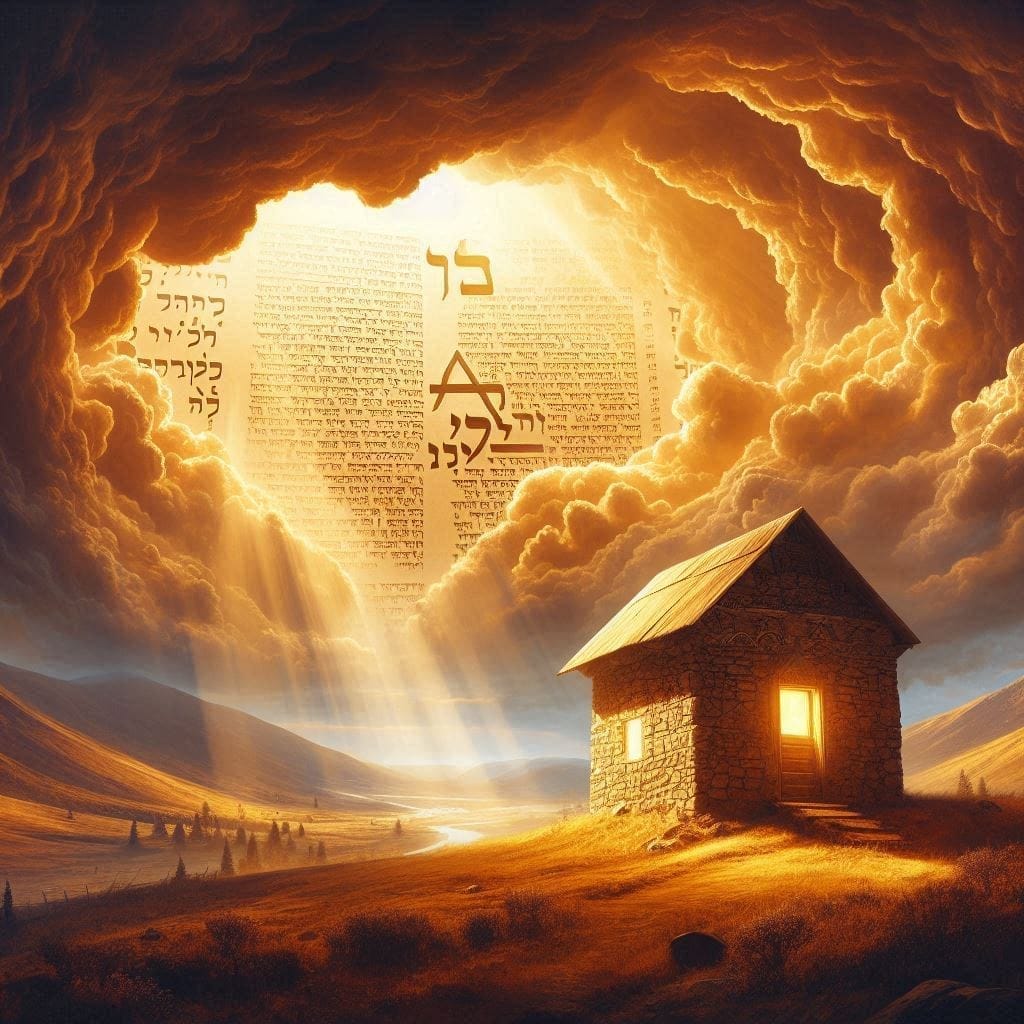
6. The Messianic Correction
The distortion of Christianity was to reverse the order — to enthrone Yeshua above Torah. The correction, then, is to restore the true order: Torah first, Mashiach second.
Torah is First — Eternal and Binding
The Torah is the foundation of Israel’s covenant. It is not a stage on the way to something else, nor scaffolding to be torn down once Mashiach arrives. As we have seen, the Torah itself testifies that it is eternal (olam), and Rambam codifies this as binding law.
Without Torah, there is no Mashiach. Rambam states in Hilchot Melakhim 11: “The King Mashiach… will not add or subtract from the Torah, but will restore it.” If a man comes claiming to be Mashiach but speaks against mitzvot, he refutes himself by his own words. The Torah is the measuring rod, and Mashiach is judged by it.
A Mashiach is Second — Servant and Witness of Torah
The word Mashiach simply means “anointed one.” Many figures in Tanakh are called mashiach Hashem — Aharon the priest, Shaul the king, David the shepherd-warrior. Each was “anointed” to serve, not to dominate Torah.
The final Mashiach is no different.
He is not an innovator but a restorer. His greatness is not that he writes a new Torah, but that he strengthens Israel to keep the Torah we already have. His role is to witness to Torah, embody Torah, and help Israel return to Torah observance.
Prophet and Messiah Defined
Rambam in Yesodei HaTorah 7–10 explains the role of a prophet: not to innovate new mitzvot, but to call Israel back to the mitzvot we already have. When prophets seem to “suspend” a commandment temporarily, it is only for a moment of crisis, never as permanent legislation.
Mashiach shares this same mission. He is a king-prophet-warrior whose task is restoration, not innovation. His authority is real, but it is bounded. His power is great, but it is channeled into one goal: to restore Torah to its proper place among Israel.
Conclusion of Section 6
Torah is eternal. Mashiachim, and prophets are vessels. Their greatness lies in strengthening Torah, never in rising above it.
Christianity made Yeshua into a rival of Torah. Jews who follow him or any Messiah must see that individual a servant of Torah.
Only then can he be placed in his proper order.
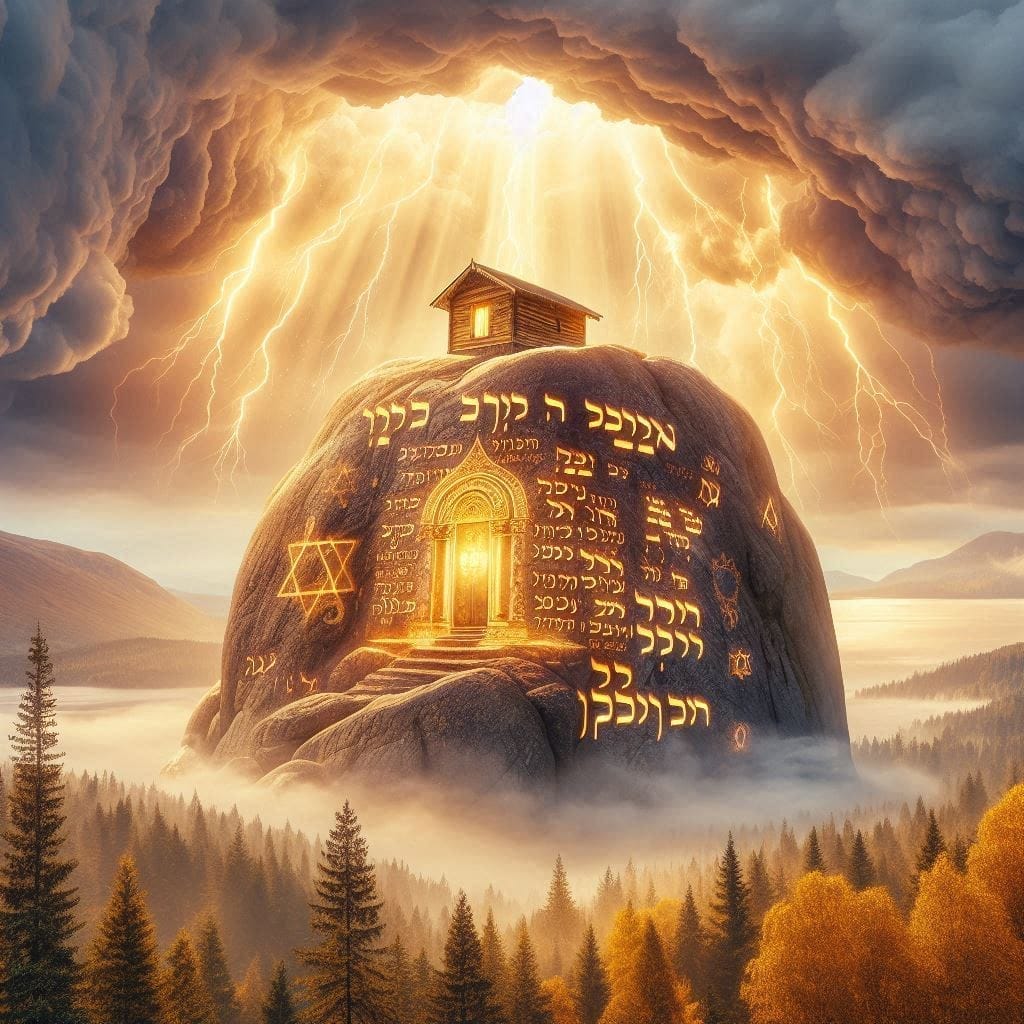
7. Closing Word
The Baal Shem Tov taught: “Every gate to heaven is opened by Torah and mitzvot.” These are the keys of Israel. Christianity, in rewriting Yeshua into God and severing him from Torah, shut those gates. They traded commandments for creed, mitzvot for metaphysics.
But the gates can be reopened. How? By restoring Torah to its rightful place. By declaring once again that Torah is eternal, binding, and supreme. By remembering that Mashiach, whether David or the final redeemer, is a servant of Torah, not its master.
To be true Judaism, must reopen these gates. It must put Torah first and Mashiach second. It must recognize Yeshua not as a replacement for Torah, but as one who points us back to Torah.
And so we return to our opening question: What is more important for the Messianic — Torah or A messiah?
The answer is now clear:
• Without Torah, a messiah is nothing.
• With Torah, a messiah even Yeshua finds his place.
This is the proper order. This is the covenant of Israel forever.
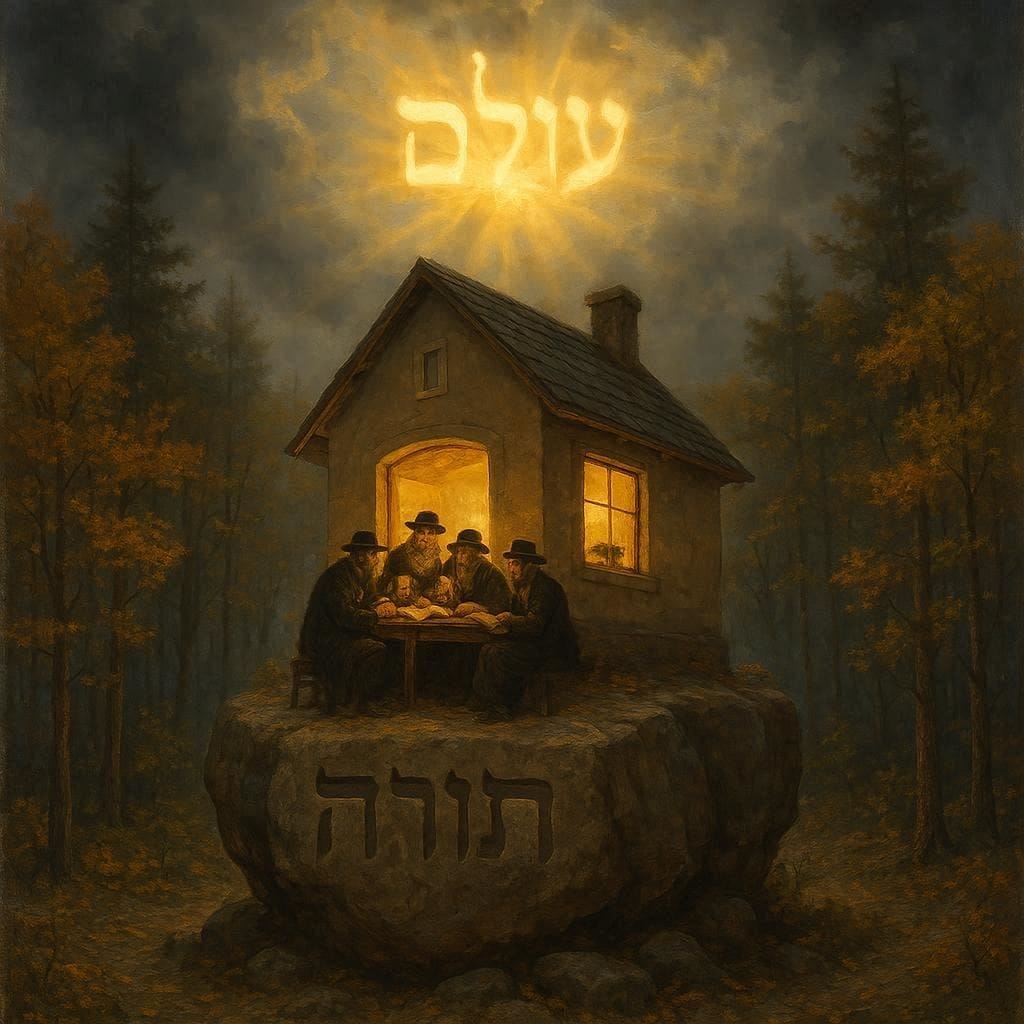
Mashal:
Building on the Rock
A certain man wished to build a house in the forest. He looked for a place that was wide and easy to clear. He found a patch of soft earth and said, “Here I will build quickly, for the ground gives way easily to my shovel.” In a short time, his walls were raised, and the house stood tall. But when the rains came, the earth beneath it shifted, and the house fell with a great crash.
Another man also sought to build a house. He found a place where the earth was hard and rocky. His neighbors laughed at him: “Why do you trouble yourself with such stubborn ground? You will never finish.” But the man replied, “A house must rest on strength, not ease.” He worked slowly, cutting into the rock, and the work was heavy. Yet when the rains came, the house stood unmoved, for it was founded on stone.
This is the Torah — the rock of Israel. A house built on anything else, whether soft earth or passing wind, cannot stand.
Rebbe Nachman teaches that every Jew must find a “nekudah tovah,” a good point, and strengthen it until it becomes a foundation. The Baal Shem Tov teaches that even the simplest mitzvah, if done with sincerity, opens the gates of heaven. Together they remind us: it is not brilliance or swiftness that builds the eternal house, but steady work upon the rock of Torah.
And Yeshua’s parable, too, when read in its proper order, pointed to the same truth: a life built on Torah is a life built on rock. A life built on anything else will not endure.
Nimshal
So too with our faith. If we build it on Torah, the eternal rock, it will withstand storms and ages. Mashiach is not the foundation but one of the builders — a servant who places stone upon stone. The Torah is the rock itself.
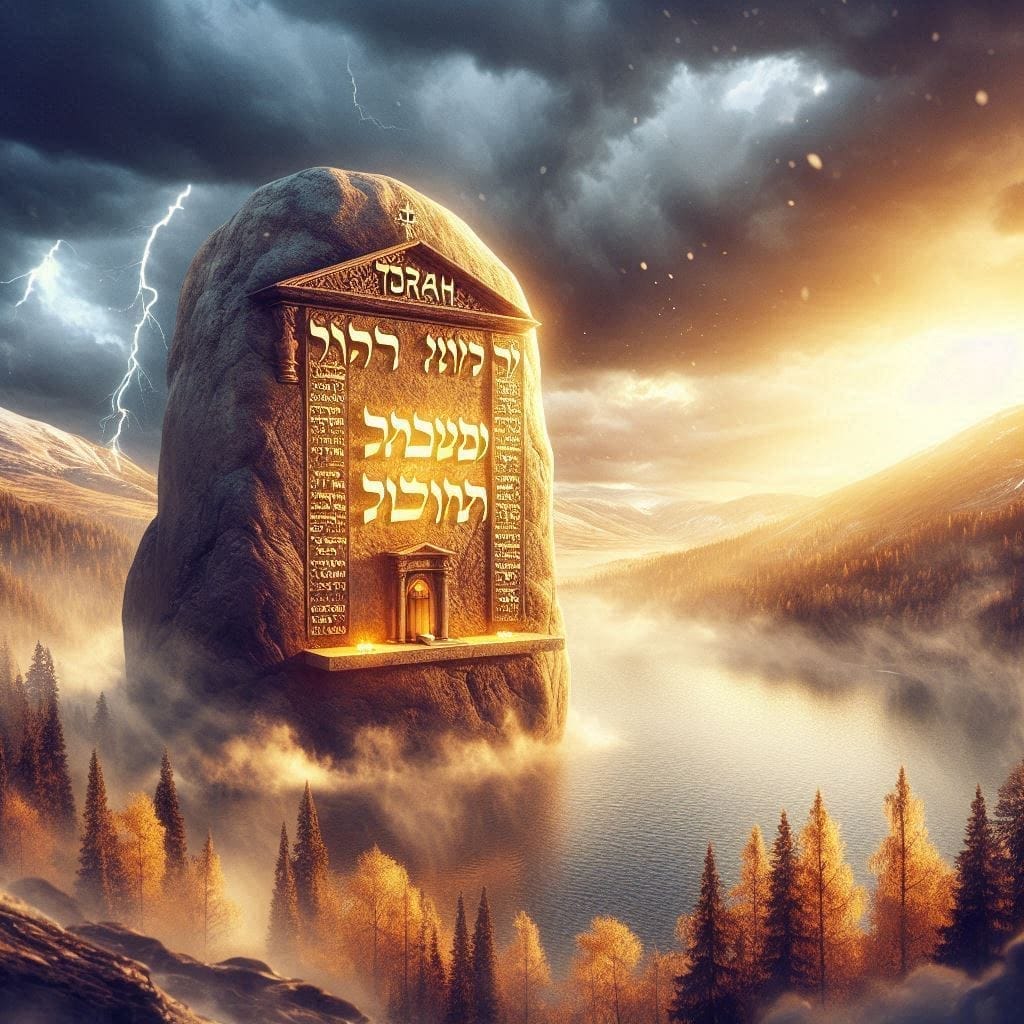
Subscribe now.
Sign up for our newsletter to get the most interesting stories of the day straight to your inbox before everyone else
Created with © systeme.io • Privacy policy • Terms of service


